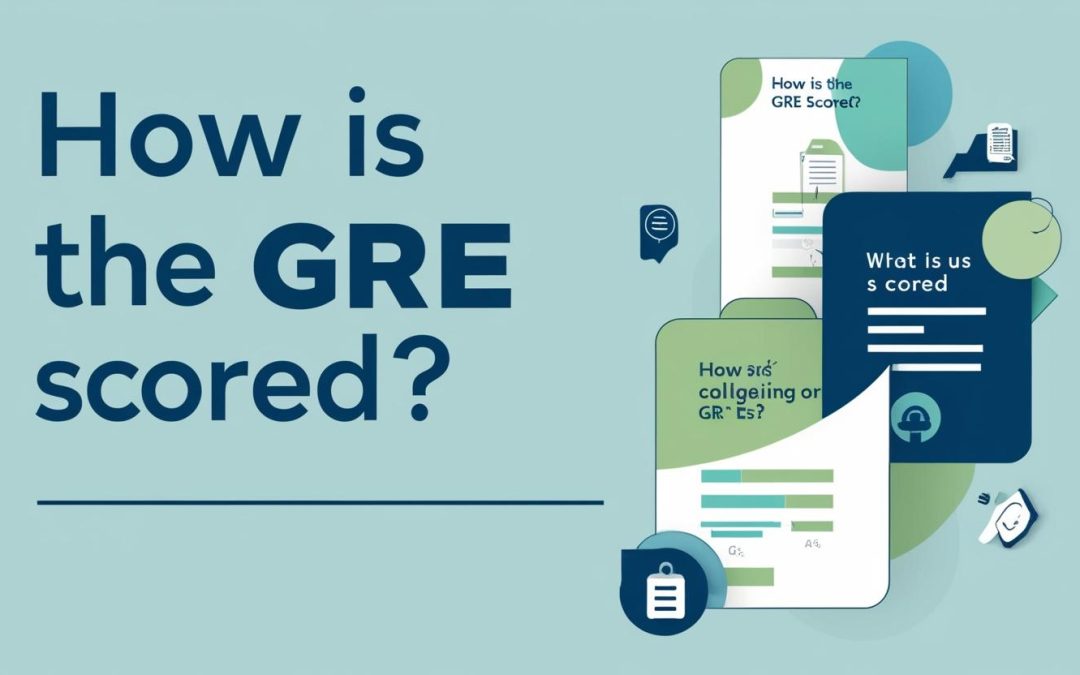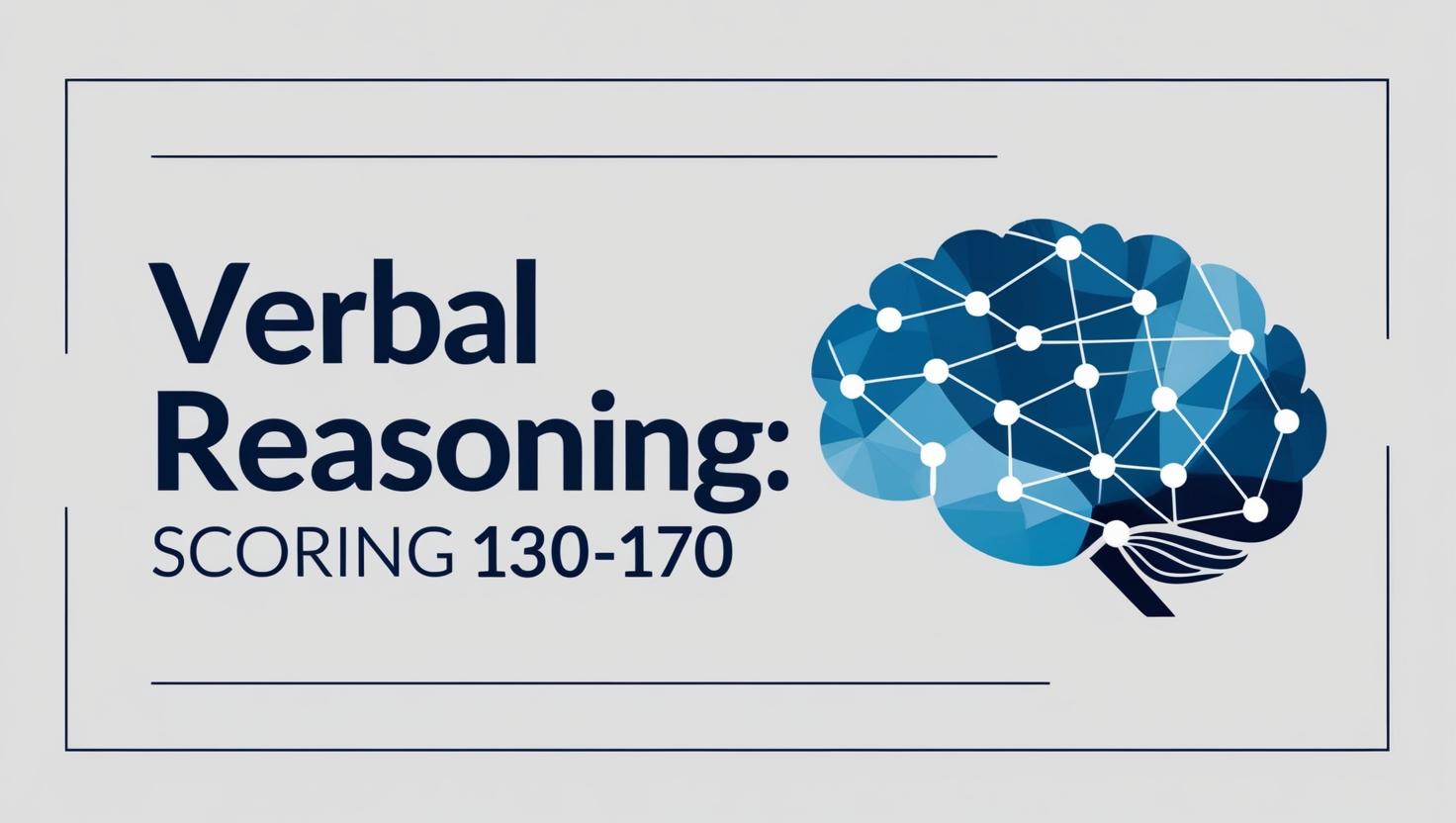If you're gearing up to take the GRE (Graduate Record Examination), understanding how the test is scored is crucial to your success. The GRE is a standardized test used by graduate schools to assess your readiness for advanced study. Whether you’re applying to a master’s program or a PhD track, your GRE score plays a key role in your application.
At TakeMyGREExam.com, we’re here to help break down how the GRE is scored in an easy to understand, friendly way. We want to ensure you feel prepared and confident heading into your exam. So, let’s dive right in!
Understanding the GRE Scoring System
The GRE is made up of three main sections:
-
Verbal Reasoning
-
Quantitative Reasoning
-
Analytical Writing
Each of these sections is scored differently, and understanding how they work will give you a better idea of how to approach the exam and interpret your results.
Verbal Reasoning: Scoring 130-170
Verbal Reasoning measures your ability to analyze written material, evaluate arguments, and understand relationships between words and concepts. The Verbal Reasoning section consists of two parts: Reading Comprehension and Text Completion.
-
Reading Comprehension: You’ll read passages and answer questions that test your ability to understand and analyze what you’ve read.
-
Text Completion: You’ll fill in blanks in sentences, testing your vocabulary and ability to understand context.
Each of the two Verbal Reasoning sections is scored on a scale from 130 to 170, in one-point increments. The average score for this section is around 150, but don’t worry this can vary depending on the graduate programs you're applying to.
Quantitative Reasoning: Scoring 130-170
Quantitative Reasoning measures your ability to reason with numbers and solve problems using basic math concepts. It tests your understanding of arithmetic, algebra, geometry, and data analysis. This section is designed to assess how well you can interpret and analyze quantitative data.
The Quantitative Reasoning section is also scored on a scale of 130 to 170. Like the Verbal Reasoning section, the average score typically hovers around 150.
Note: Unlike the Verbal section, the Quantitative Reasoning section doesn’t have a specific “penalty” for incorrect answers. If you're unsure about a question, it’s better to make an educated guess than to leave it blank!
Analytical Writing: Scoring 0-6
The Analytical Writing section measures your ability to think critically and communicate ideas effectively in writing. You’ll be asked to write two essays:
-
Analyze an Issue: You’ll present your views on a given topic, supported by reasoning and examples.
-
Analyze an Argument: You’ll critique an argument and discuss its logical flaws.
Each essay is scored on a scale from 0 to 6, in half-point increments. These scores are then averaged to produce your final Analytical Writing score.
Your essays are scored by both a human rater and a computer, using a process called e-rater. The average Analytical Writing score tends to be around 3.5, but this can vary depending on the specific program you're applying to.
How Your Total GRE Score is Calculated
Each section of the GRE contributes to your overall performance, but the scores for the Verbal Reasoning and Quantitative Reasoning sections are the most important when it comes to your total GRE score.
-
Your Verbal and Quantitative Reasoning scores are combined to give you a total score out of 340.
-
The Analytical Writing score is reported separately, ranging from 0 to 6, and is not factored into your total score.
What is a Good GRE Score?
A “good” GRE score depends entirely on the programs you’re applying to. For highly competitive programs at top universities, you may need a score closer to 160 or above in each section. However, for less competitive programs, a score in the 150s might be sufficient.
To help you better understand how your score compares to other test-takers, here’s a breakdown of GRE score percentiles:
|
Score |
Percentile |
|---|---|
|
170 |
99th |
|
160 |
86th |
|
150 |
50th |
|
140 |
17th |
|
130 |
1st |
As you can see, the higher your score, the better you’ll rank compared to other test-takers. But remember, each program has different requirements, so always check the specific score ranges they prefer.
How Does the GRE Scoring Process Work?
The GRE is a computer-based test, meaning your responses are automatically scored by the GRE system. Here’s how it works:
-
Adaptive Scoring: The GRE uses a computer-adaptive testing (CAT) format, which means that the difficulty of the questions you’re presented with will depend on your previous answers. If you do well, you’ll be given more challenging questions. If you struggle, the questions will adjust to a slightly easier level.
-
Score Reports: You will receive your Verbal Reasoning, Quantitative Reasoning, and Analytical Writing scores a few weeks after the test. You can send your scores to graduate programs directly from your ETS account.
FAQs About GRE Scoring
1. How long does it take to get GRE scores? You’ll receive your scores for the Verbal, Quantitative, and Analytical Writing sections approximately 10-15 days after your test date.
2. Can I cancel my GRE scores? Yes! If you’re unhappy with your performance, you can cancel your GRE scores before you leave the testing center. Keep in mind that once you cancel, you won’t be able to retrieve those scores later.
3. How many times can I take the GRE? You can take the GRE once every 21 days, up to five times within any continuous rolling 12-month period. Be strategic about when you take the test to give yourself the best chance for success!
4. How is the GRE Analytical Writing section scored? The Analytical Writing section is scored by both a human rater and a computer-based scoring system. Your score will be based on your ability to present a clear, well-supported argument and your writing's clarity, coherence, and organization.
5. Is the GRE scored on a curve? No, the GRE is not scored on a curve. The scores are based on your individual performance compared to others who have taken the test.
Tips for Achieving a Great GRE Score
-
Study Smart: Focus on both the content and strategies of the test. Practice with timed practice tests and focus on areas where you need the most improvement.
-
Use Official GRE Prep Materials: Take advantage of the official materials offered by ETS to familiarize yourself with the question types and test format.
-
Don’t Overlook Analytical Writing: While it may seem less important than the other sections, your essays are crucial for showing your critical thinking skills. Practice writing clearly and logically.
-
Stay Calm on Test Day: The GRE is challenging, but staying calm and managing your time effectively can make a huge difference in your score. Remember, you’ve got this!
Final Thoughts
Understanding how the GRE is scored can take some of the stress out of preparing for the exam. With this knowledge, you can set clear goals and focus your preparation efforts where they count the most. Whether you’re aiming for a 170 or simply hoping to meet the minimum score for your target programs, confidence comes from knowing the system and setting yourself up for success.
At TakeMyGREExam.com, we’re here to help you every step of the way. Our expert tips and test prep resources can guide you through your GRE journey with ease. Start preparing today and take one step closer to your graduate school dreams!
Good luck, and happy studying!


